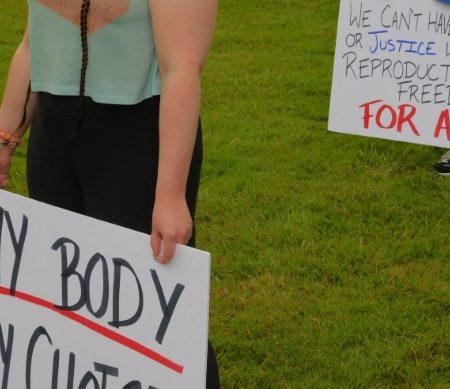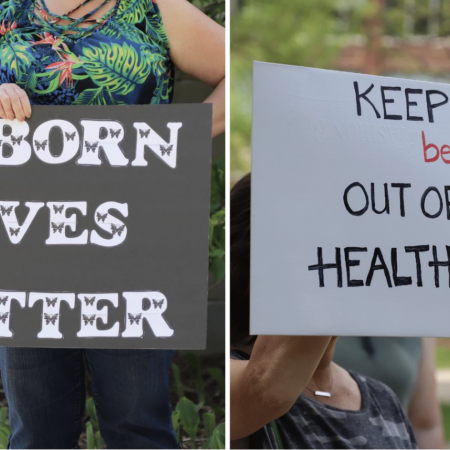For many Michigan voters, abortion is the only issue when it comes to voting for the next President of the United States
Michigan voters are casting ballots for the next President of the United States.
Perhaps no issue is more divisive among Michigan voters as abortion.
Michiganders are talking about what kind of presidential leadership they would like to see when it comes to abortion and reproductive health care.
Abortion is, of course, a very personal issue.
Stephanie Jones didn’t want to undergo an abortion. But a medical emergency made it necessary. She believes if Michigan had the same anti-abortion laws on the books that some other states have, she would not have survived.
Jones wants to see presidential leadership tempered with “empathy” when it comes to abortion.
“First, they have to be empathic and understand what it is like to go through that because how can you lead and govern if you aren’t understanding of the people’s struggle. That’s the proof of a good leader,” said Jones. “You don’t have to have the struggle yourself, but you have to at least be willing to listen and understand the nuances.”
But for those against abortion rights, now that the U.S. Supreme Court has left the issue up to the states, they want presidential leadership to focus elsewhere.
Trevor Polo is with Protect Life Michigan. He wants to see presidential leadership to address issues, like economic and family life, that often lead to women seeking abortions.
“I’d like to see whoever the president might be talking about solving those real issues,” said Polo. “ But not sacrificing rights of unborn children in the process.”
For Michigan doctors, the debate over abortion and reproductive health care shows different needs that could be influenced by the next president.
Dr. Katherine Stark has been a practicing OB-GYN for more than three decades in southeast Michigan. These days she’s the medical director at several reproductive health centers that try to provide an option to pregnant women who might otherwise consider abortion.
Stark said she would like the next president to prioritize life, including increasing funding for reproductive health care.
“Whether you’re poor or you’re wealthy or anywhere in between, you should be able to access excellent care for yourself and your family without worrying about doctors and clinics can’t take my insurance because Medicaid pays so poorly,” said Stark.
Many Michiganders are also concerned that the debate over abortion is spilling over into other aspects of reproductive health care; in particular they are concerned about the future of in vitro-fertilization or IVF.
Dr. Molly Moravek is a fertility specialist. For the past decade, she has helped many Michigan couples and individuals struggling to have children.
She’s not sure she wants to see presidential actions when it comes to abortion and reproductive health care.
“What I’d really like to see is someone who moves toward giving that autonomy back to physicians and their patients, and what happens in the clinic between us,” said Moravek. “Because every patient situation is different, and so it’s really hard to say this policy is right or wrong, ’cause it’s not right or wrong for everybody.”
Former President Donald Trump says he wants to leave abortion decisions to the states, while Vice President Kamala Harris favors congressional action to protect access to abortion and other reproductive health care options.
You can learn more here about how all the presidential candidates on the Michigan ballot stand on this and other issues.
The post For many Michigan voters, abortion is the only issue when it comes to voting for the next President of the United States appeared first on WDET 101.9 FM.

